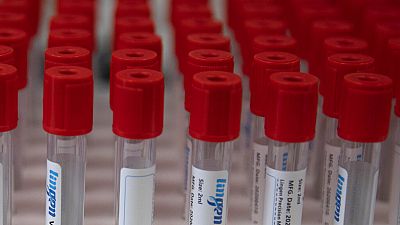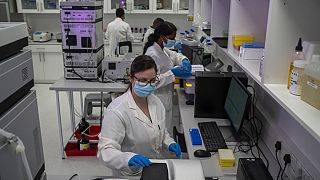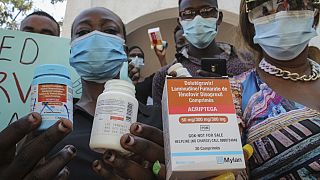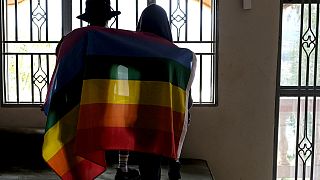HIV
Scientists claim to have eradicated HIV from infected cells using Crispr gene-editing technology, which won the Nobel Prize.
Crispr acts like molecular scissors, cutting DNA to remove or deactivate harmful sections.
The goal is to completely eliminate the virus from the body, but more research is necessary to ensure safety and effectiveness.
Current HIV treatments can suppress the virus but not eliminate it.
Presenting their initial findings at a medical conference, the University of Amsterdam team emphasizes that their work is still in the early stages and not a cure for HIV yet.
Dr. James Dixon from the University of Nottingham agrees, stating that further investigation is required.
Efforts are ongoing by other scientists and Excision BioTherapeutics, with three HIV patients showing no major side effects after 48 weeks.
However, experts like Dr. Jonathan Stoye from the Francis Crick Institute warn about the challenge of removing HIV from all potentially infected cells and the risk of long-term side effects.
Effective treatment can suppress HIV, but some infected cells remain dormant, posing a risk if treatment is stopped.
While rare cases have shown apparent cures after aggressive cancer therapy, this approach isn't advisable solely for HIV treatment.














00:47
Ghana: President Mahama suspends Chief Justice Gertrude Torkornoo
Go to video
Police rescue 33 West Africans from a human trafficking scam in Ivory Coast
Go to video
Pope Francis' funeral scheduled Saturday April 26
Go to video
Al-Qaida-linked militants attack a strategic town in Somalia
Go to video
Trump administration threatens Harvard over foreign student visas and protest ties
Go to video
The EU moves to fast-track asylum claims by migrants from 7 countries to speed deportation